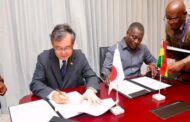The Member of Parliament for Madina Hon. Francis-Xavier Kojo Sosu has held a one-day stakeholders briefing on the removal of Value Added Tax (VAT) on imported pads bills, extension of maternity leave to six months and introduction of paternity leave to support the newborn baby and the breastfeeding mother.
According to Hon. Sosu, the imposition of customs duty and import VAT on menstrual hygiene and other items poses a major challenge to women and girls, particularly those living in rural areas and deprived communities who need them to absorb or collect menstrual blood.
“Menstruation is a natural physiological phenomenon that occurs in adolescent girls and pre-menopausal women which urgently requires the use of hygienic sanitary napkins or tampons during that time of the month” he stated.
At the stakeholders briefing that brought together representatives from Civil Society Organisations (CSOs), Trade Union Congress (TUC), Amnesty International (AI), Ghana National Association of Teachers (GNAT), National Labour Commission (NLC), Ghana Enterprises Agency (GEA), Commission on Human Rights and Administrative Justice (CHRAJ), Attorney General’s Office and Head of Civil Service, the MP for Madina argued that menstruation demands the accessibility to good sanitary napkins at affordable prices by both women and girls of menstruation age and requires the practice of good personal hygiene.
He was of the view that just like it is easy to access toilet rolls at various public washrooms the time has come for stakeholders to fight for free pads for all. He insisted that the advocacy for free pads for all must start from somewhere hence the initiative for the Private Members Bill to amend sections of the Customs Bill 2023 and the Labour Bill 2024.
He indicated that when passed into law, the Bill will reduce the 20% customs duty as well as the 15% import VAT on imported sanitary towels (pads) and tampons including similar articles, napkins and liners for babies, incontinence pads for adults use and related items to zero percent customs duty and zero percent import VAT respectively.
On the issue of an extension for Maternity Leave and introduction of paternity leave, Professor Abigail Opoku Mensah, Director of Research & Consultancy Center noted that the World Health Organisation (WHO) recommends exclusive breastfeeding for the first six months of a newborn’s life to ensure health outcomes for infants, however many mothers struggle to adhere to this recommendation due to short maternity leave duration.
“Currently the existing maternity leave of 12 weeks in Ghana is insufficient to allow for adequate recovery and bonding with newborn infants as recommended by WHO” she added.
The many CSOs, traditional leaders, and individuals who attended the stakeholders briefing are all advocating the extension of maternity leave from the current three months to six months when the mother is still breastfeeding the baby.
For the official introduction of Paternity, the stakeholders were of the view that there is a cultural shift where many men are seen lately actively playing important roles in the life of their newborns and assisting their wives therefore amending the existing law to allow men to go on leave for two weeks or a month would be beneficial to the family.
Challenges of the private sector allowing their employees to go on leave for six months, whether a man married to two or more women is entitled to go on leave continuously should the wives give birth the same year and other challenges associated with the proposed Bill, Hon. Sosu was advised to work with the drafters of the Bill to tighten it to address all the challenges highlighted during the stakeholders briefing.
Source:Mybrytfmonline.com/Kwabena Nyarko Abronoma




















































